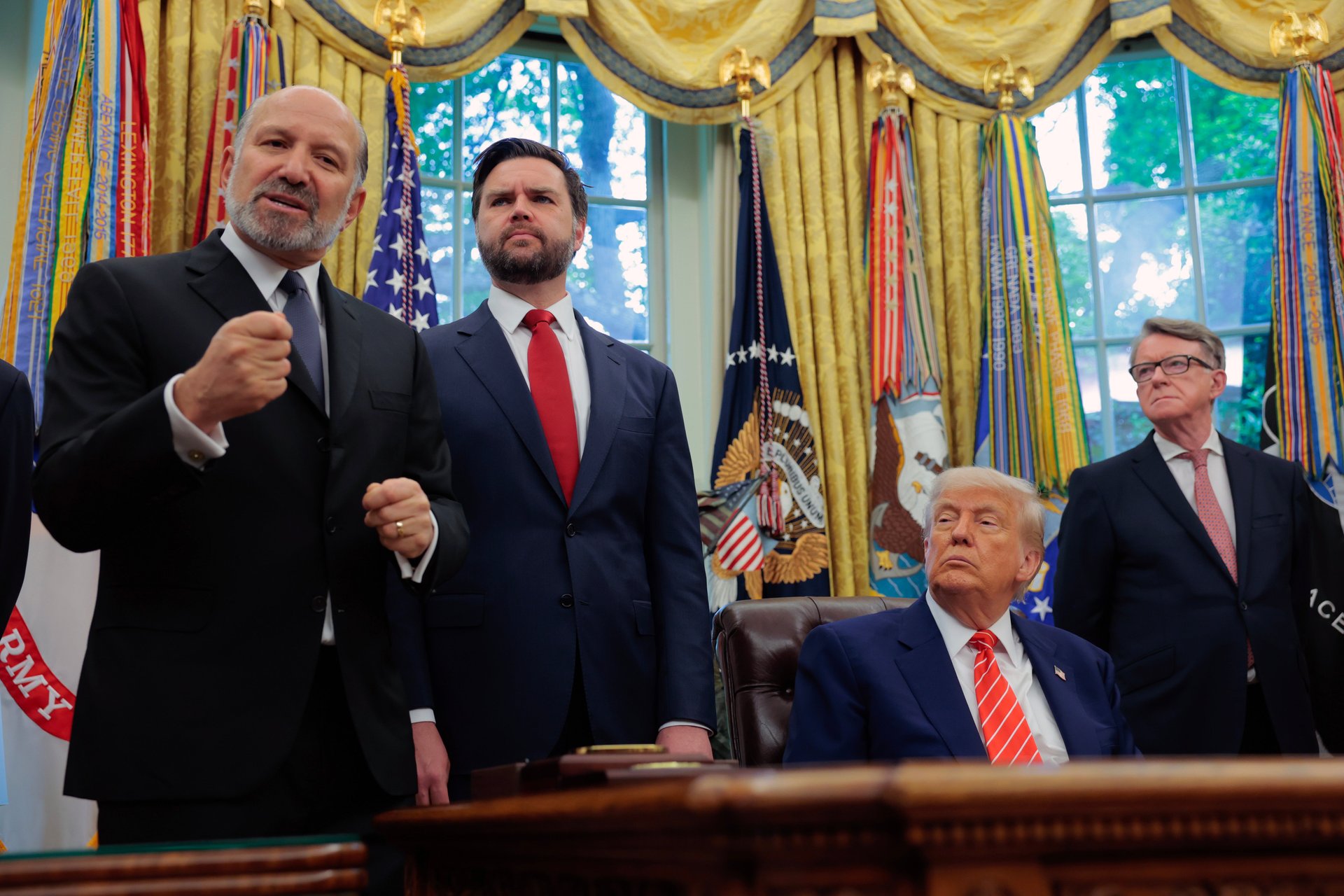Trump says tariffs won't go lower than 10% — and 'some will be much higher'
The president said he gave the U.K. a favorable deal because of the countries' shared history, but warned that others shouldn't expect such good terms

President Donald Trump said Thursday that the universal 10% tariff on imported goods is here to stay — and may soon be the floor, not the ceiling.
Suggested Reading
“Some will be much higher because [other countries] have massive trade surpluses and, in many cases, they didn’t treat us right,” Trump said during an Oval Office event where he announced an initial trade agreement with the United Kingdom, his first under the sweeping tariff regime he launched last month.
Related Content
The agreement, which Trump called “a good deal” for both sides, keeps tariffs on British goods at that 10% baseline — a rate the U.S. imposed on most trading partners in early April. The president, in his April 2 “Liberation Day” announcement, also implemented heavy reciprocal tariffs on certain countries, although those have largely been paused.
Trump said the U.K. earned its 10% rate thanks to what he described as a history of respect and fair treatment in its dealings with the U.S.
“One thing with U.K. ... they always treated us with great respect,” he told reporters, dismissing any suggestion that the 10% tariffs were a template for future deals. “That’s a low number — they made a good deal.”
But the president said that few others should expect similar treatment.
While the U.S.-U.K. agreement is limited in scope and incomplete, the White House seems to hope it will still project momentum — and apply some pressure on others. Next, eyes will turn elsewhere to see what kind of deals other countries can (and are willing to) negotiate.
“We have many meetings planned today and tomorrow,” Trump said from the Oval Office. “And every country wants to be making deals.”
Crucial negotiations are expected to happen this weekend with China, on which Trump has imposed a 145% levy on all of the country’s imported goods; China has retaliated with a 125% tariff on goods imported from the U.S.
Treasury Secretary Scott Bessent and Trade Representative Jamieson Greer are set to meet Chinese Vice Premier He Lifeng in Switzerland on Saturday.
While testifying on Capitol Hill earlier this week, Bessent said he’d “be surprised if we don’t have more than 80% or 90% of [trade deals] wrapped up by the end of the end of the year. And that may be much sooner.”
For now, that universal 10% tariff isn’t just a starting point — it’s the price of admission.
